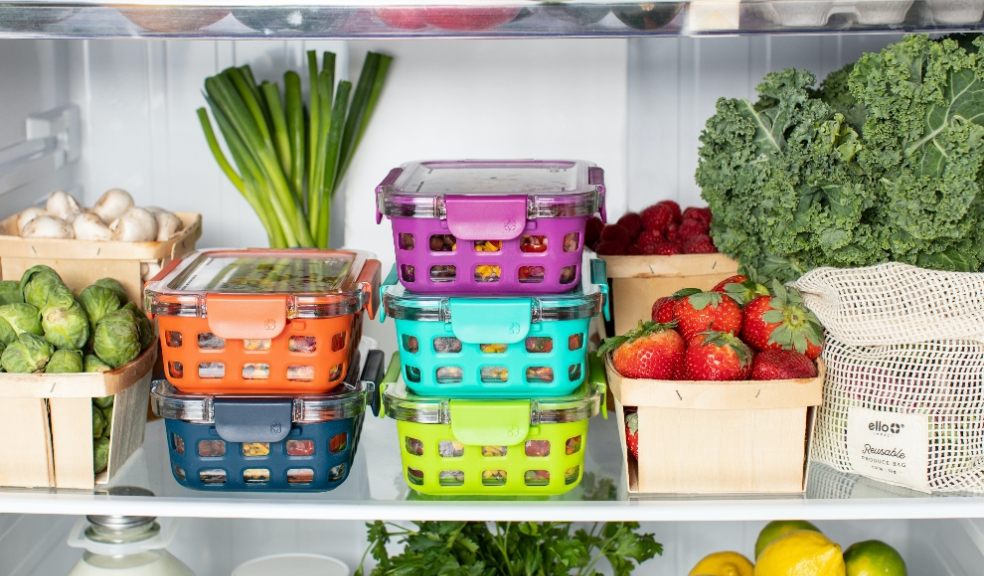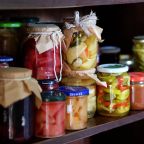
How to stop food waste during the heatwave
As the UK bakes in record temperatures, so does the nuisance of fruit and vegetables turning bad and unpleasant odours coming from food waste hanging around on our kitchen countertops.
With the cost of living on the rise, reducing food waste has never been more important… So, from eggs to avocado, Rafaelle Rochira, refrigeration category manager, at home appliance brand Hotpoint, is offering Brits expert tips on everyday items that could benefit from being moved to the fridge, during the heatwave.
How to stop food waste during the heatwave
BUTTER
“With the cost of Butter topping £9 in some supermarkets across the country, saving our spread is key for watching your spend. The oils in the butter will go rancid if exposed to too much light or heat which speeds up the oxidation process and may result in butter developing an “off” smell, look, or taste. Our recommendation – ditch the butter dish and opt for the back of the fridge, where it will remain a cool and constant temperature to avoid food waste.”
EGGS
“A question dividing the nation: should you keep your eggs in the cupboard or fridge? For optimum quality and safety, eggs should be kept at a steady temperature below 20’C. High and fluctuating temperatures isn’t ideal for eggs, so the best place to store a fresh box during the heatwave is in the fridge to avoid variations in warmth.”
AVOCADO
“Take note millennials: Do not refrigerate your avocados, at least not initially. If they are placed in the fridge too early, they won't ripen completely. Ideally, avocados should be stored in a cool, dark space at around 20’C and once ripe, uncut avocados can be stored in the refrigerator, unpeeled, for up to one or two weeks. Cut avocados should be refrigerated quickly as they oxidize and turn brown – to save this from happening, you can also add a splash of lemon juice to the avocado flesh as the acidity helps stop oxidisation.”
BREAD
“Whether it’s a cob, barm or toastie loaf – as one of our favourite staple foods, bread has a very short shelf life of 3 – 7 days when stored at room temperature, but when the mercury rises to 40, the onset of mould will come on much faster as fungus thrives in heat. However, bread stored in the fridge can dry out and become stale much faster than bread stored at room temperature, so pop it in the freezer to keep it fresh for longer during the heatwave.”
KETCHUP
“A common myth that is the cause of debate continues to split the nation: does ketchup belong in the fridge? The short answer is no: Ketchup is full of preservatives to enable it to store for long periods, so hold off filling up the fridge with your tomato sauce during the heatwave and utilise the space for fresh food items.”
BANANAS
“We’ve all been to the supermarket and bought a large bunch of bananas without thought on how long it will take us to eat them all but, to avoid them going bad in the heatwave, and to help them stay fresh for longer, we should refrigerate. Refrigerating unripe bananas will stop the ripening process and prevent the peel to turn black. However, if you put them in the fridge after they have started to go brown, they will turn to mush even faster, so it’s always best to refrigerate ripe, but still yellow, bananas – which can make them last for up to two weeks.”
Hotpoint fridge freezers are packed with thoughtful technologies which help save energy and keep food fresh. Total No Frost technology takes care of fresh and frozen food, keeping it fresh for longer, so you're not left with food destined for the bin. Active Oxygen eliminates strong odours and 99%* of bacteria and virus growth, keeping food fresh for longer.
Total No Frost technology also prevents moisture and ice build-up, so no more soggy salads, and you'll never have the dreaded chore of defrosting your fridge or freezer again.
Hotpoint is offering 10% off select Total No Frost Fridge Freezers with the code Cool10, for more information – see here.













